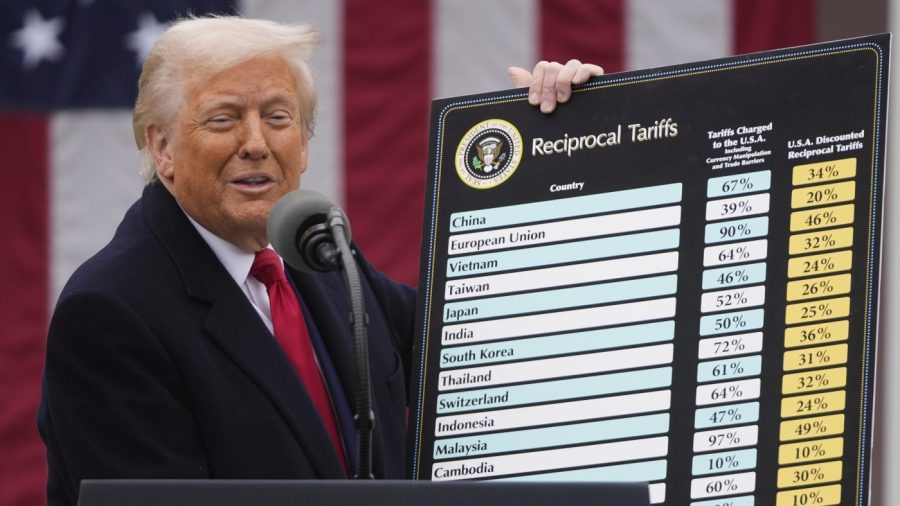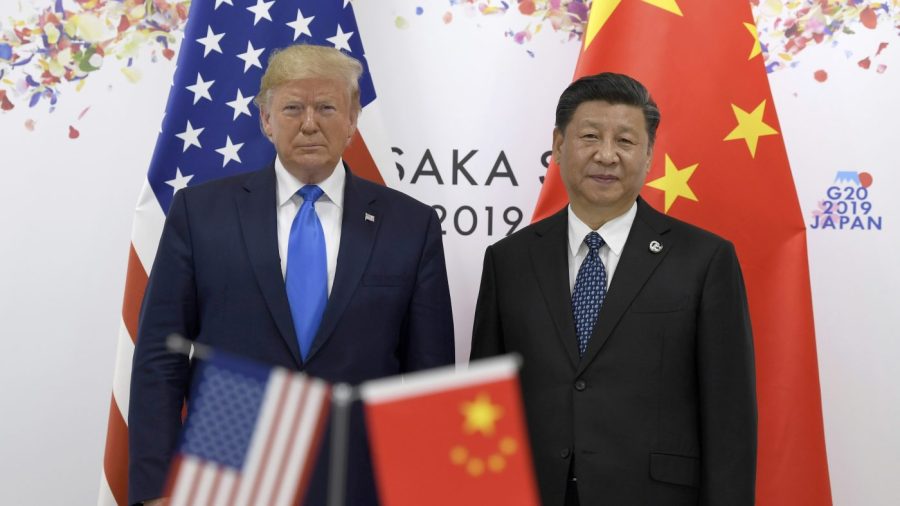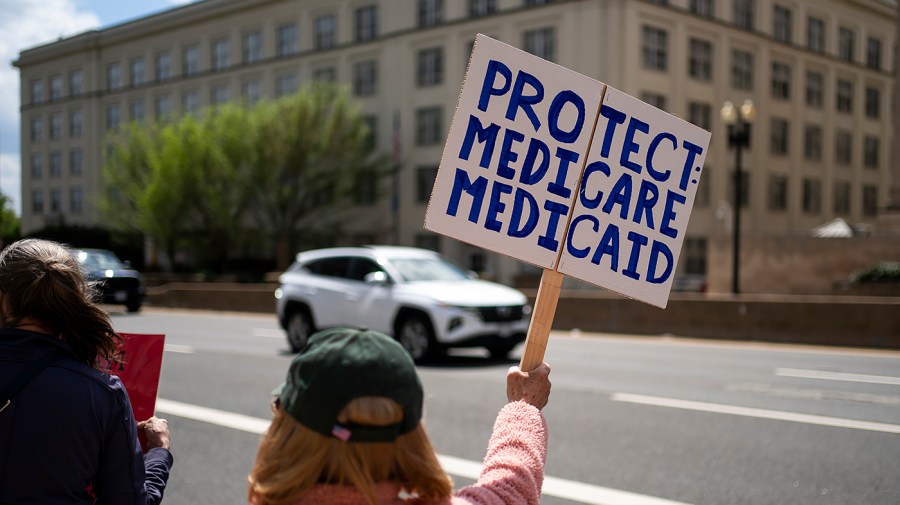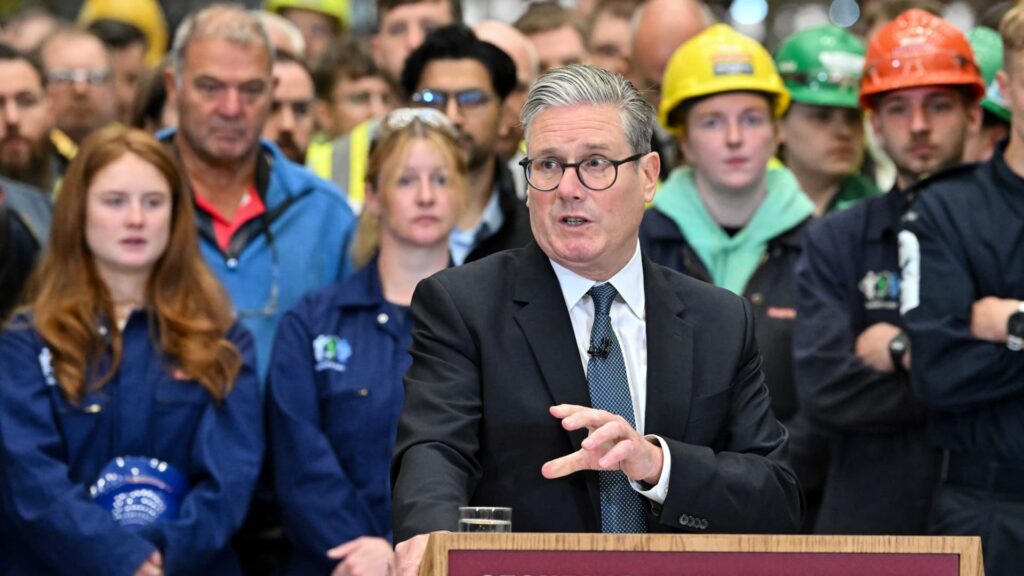]
President Trump’s tariffs will take a major bite out of U.S. deficit levels, reducing them by $2.5 trillion over the next decade and shrinking the size of the U.S. economy, the Congressional Budget Office (CBO) found in a Wednesday analysis.
The deficit reduction is almost exactly the same size as the deficit addition that would result from the GOP’s “big, beautiful bill.” The CBO found that the bill would add $2.4 trillion to deficits through 2034 in a separate analysis released Wednesday.
The tariffs measured by the CBO are those implemented from Jan. 6 to May 13, which includes the trade truce with China announced on May 12.
The CBO included in its calculation a menu of tariffs that Trump has announced since taking office. They include a 30 percent tariff on imports from China and Hong Kong; 25 percent tariffs on imports from Canada and Mexico that started on March 7; 25 percent tariffs on steel and aluminum from March 12; 25 percent tariffs on most automobile imports starting April 3; 10 percent tariff on imports from most countries, that began on April 5; and 25 percent tariff on imports of most auto parts, as of May 3.
Trump has said since the start of his term that he would implement tariffs to balance trade with other countries and to try to spur a manufacturing boom in the U.S. He has routinely announced tariffs, then paused them in an effort to strike a trade deal with a particular nation. But several tariffs have stuck and the overall effect tariff rate is now between 10 percent and 15 percent, the highest level in decades.
The boosted projections for federal revenue will likely raise long-term economic confidence, especially since the bond market has been quaking in recent weeks. Bond yields have popped in response both to tariffs and proposed GOP legislations.
Republican arguments about the fiscal health of the U.S. economy are likely to get a jolt from the new CBO scores, as well.
Democrats asked the CBO to score the president’s tariffs.
Marc Goldwein, policy director of the nonpartisan Committee for a Responsible Federal Budget, described the tariff offsets of the cost of the Republican’s budget bill as “pretty coincidental.”
The main reasons for the higher deficit reductions than in other forecasts are lower interest rate payments on the debt along with higher tax revenues from increased inflation.
The decrease in primary deficits from less spending on interest would reduce total deficits by an additional $500 billion, CBO projected.
“Total deficits over the 2025-2035 period would be $3.0 trillion lower than projected in CBO’s January 2025 baseline,” the agency said.
Higher nominal prices from a 0.4-percent boost to inflation from the tariffs will increase federal revenues, since taxes are taken out of income. “The net result of those effects will be an increase in federal revenues,” CBO said.








